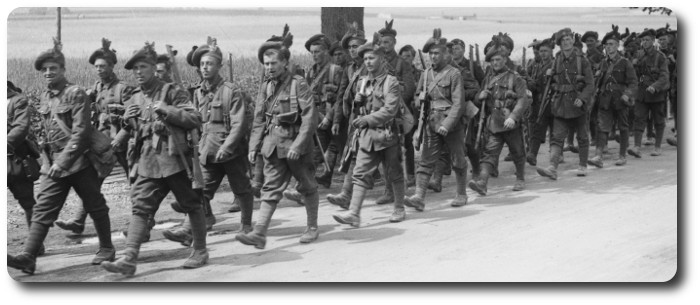Topic: CEF

Soldiers Gratuities
The Montreal Gazette, 24 March 1920
In a recent article dealing with the provision which has been made, and is still being made, for returned soldiers by the Canadian Government and Parliament, the statement was made that the liberality of re-establishment measures adopted in this country has not been approached by any other of the nations which took part in the war. In support of that assertion there was submitted a comparative statement of gratuities granted to returned soldiers in Canada, Great Britain, the United States, Australia and new Zealand. The figures then quoted represented correctly the situation as it existed in September [1919], when the facts referred to were placed before Parliament. Since that time, both Australia and New Zealand have substantially increased their gratuities. The effect has not been to place the Australian and new Zealand scale upon an equity with the Canadian scale, Canada still holding the undisputed first place as regards the amount given, just as Canada was the first country definitely to outline a system of was service gratuity at all. In order, however, that no injustice may be done to the other Dominions, the increased Australian and New Zealand gratuities have been included in the statement given below. The rates compared are those paid to privates, who are the great majority of recipients, base upon three years' service:
- United Kingdom,
- with or without dependents, overseas service, $82.73;
- home, $53.53.
- Australia,
- without dependents, overseas service, $273.82;
- with dependents, $289.35.
- United States,
- with or without dependents, overseas service, $60.00.
- Canada,
- without dependents, overseas service, $420.00;
- home service, $210;
- with dependents, overseas, $600.00;
- home, $300.
- New Zealand,
- without dependents, overseas service, $427.80;
- with dependents, overseas service, $447.96.
In Great Britain and in Australia, the gratuity is increased proportionately for periods of service exceeding three years. In the case of new Zealand, also, it is possible for a soldier to draw a larger amount than that given as the three year total, payment being made at a rate of one shilling and sixpence per day of service, calculated from the day of embarkation of the New Zealand main body, September 23, 1914, and up to the time of demobilization, June 20, 1919, a total possible period of four years and 278 days.
Of the Australian gratuity $175.20 is payable in 5¼% bonds only, the balance (about $100) being payable in cash. It has been claimed that as the Australian and New Zealand private received a larger payment while on active service than his brother from Canada, this more than made up for the lesser gratuity. The Australian private received 6s. per day as against the Canadian $1.10. This placed the single Australian at an advantage, but the married man was at a considerable disadvantage, as the pay and allowances to a married man were $53.40 against $63 in the case of a Canadian. In the ranks above private, when the pay reached $2.40 per day, no separation allowance was payable.
The New Zealand private received 5s per day and there appears to have been a small separation allowance. An allowance of 1s 6d per day for each child, up to three children, was made. Allowances for children were not issued by the Canadian Government, but this matter was placed in the hands of the Canadian Patriotic Fund. While this fund was largely voluntary, except in the case of Manitoba, it was virtually added taxation. The extra allowance issued by the Canadian Patriotic Fund equaled and, in some cases, exceeded the allowances issued by the New Zealand Government, the New Zealand authorities granted 28 days' post discharge pay to all returned soldiers, and the value of this has been included in the amounts set down as gratuity. The value of what is termed "the railway concessions" has not been included. A returned New Zealand soldier is granted free passage over the Government railways for 28 days, and this is claimed to represent an extra gratuity of $28.80, but it is doubtful whether many men availed themselves of this privilege.
One feature of the Australian, which goes a little beyond the Canadian, is that 7½ days pay of rank for each six months of service, plus sustenance allowance, is granted to the dependents of deceased soldiers.
On the whole, however, the Canadian scale will stand as the most liberal of all, and, so far as the gratuity itself is concerned, it will be very difficult to make out a case for raising the amount. Canada has sought to do justly and generously by the soldier and has good reasons to be satisfied with the result.

